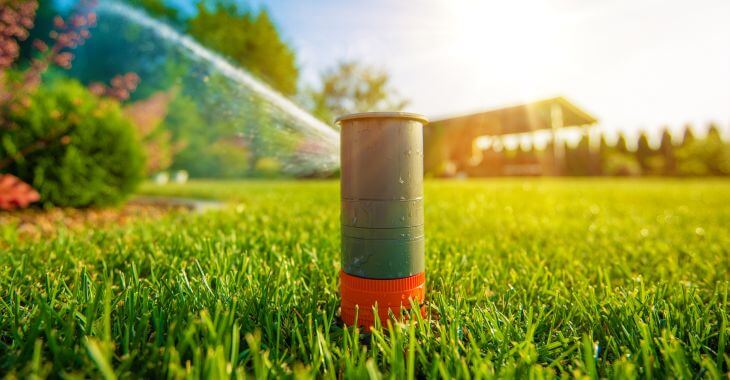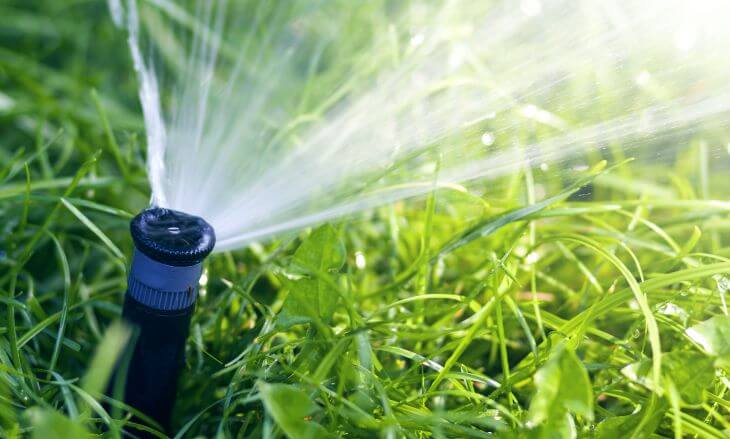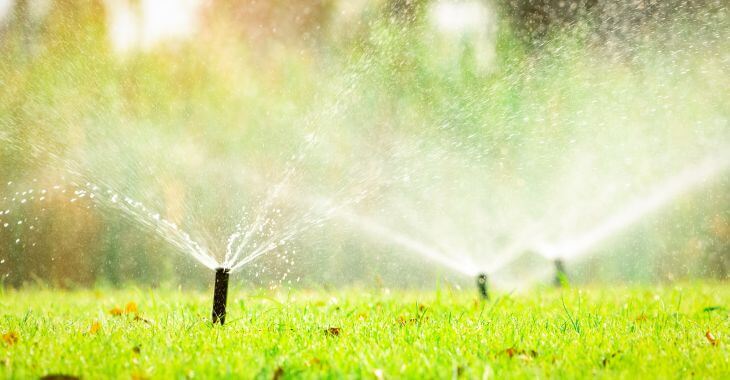What to Do When Lawn Sprinklers Won’t Turn Off

Dealing with a situation where your lawn sprinklers refuse to turn off can be frustrating and may lead to water wastage, increased utility bills and potential damage to your lawn. When lawn sprinklers won’t turn off, it is vital to find the cause as quickly as possible.
Several factors could contribute to sprinklers not turning off, ranging from simple mechanical malfunctions to more complex electrical or programming problems. Here is a step-by-step guide on what to do when your lawn sprinklers refuse to turn off.
1. Locate the Main Water Supply
The first step is to find the main water supply or shut-off valve for your irrigation system. It is usually located near the water meter or where the main line enters your property. Shutting off the water supply can stop the continuous flow of water to the sprinkler system, preventing water waste or damage.
2. Check the Controller or Timer
Inspect the controller or timer for your sprinkler system. Ensure it’s not stuck or malfunctioning. Check the programming to verify that there are no scheduled watering cycles overlapping or any programming errors that might be causing the system to run continuously.
3. Manually Turn Off the System
Most irrigation systems have manual valves that control specific zones. If a sprinkler zone won’t turn off, locate the valve or valves corresponding to the zone and try manually turning them clockwise to shut off the water flow to that zone. This provides a temporary solution until you can fix the underlying issue.
4. Inspect and Clean the Valve Box
Valve boxes can get dirty or filled with debris, obstructing the proper function of the valves. Open the valve box and check for any debris or obstructions around the valves. Clean the area to ensure the valves can close properly, which can often fix the problem.
5. Check for Valve Issues
After cleaning the valve box, inspect the valves themselves for any visible signs of damage, leaks or debris. Sometimes, debris or small stones can prevent the valve from closing completely. Clean the valve or replace it if necessary.
6. Test the Solenoid
The solenoid is an electromagnetic component that controls the valve’s opening and closing. Test the solenoid by removing it from the valve and manually activating it using a 9-volt battery. If it clicks or makes a buzzing sound, it is functioning correctly. If not, it might need replacement.
7. Examine the Wiring and Connections
Check the wiring and connections to ensure there are no exposed wires, frayed cables , or loose connections that could cause a short circuit or prevent the system from receiving the signal to shut off.
8. Consult the Rain Sensor
If your system is equipped with a rain sensor, it might be malfunctioning and causing the sprinklers to not turn off. Inspect the sensor and ensure it is clean and free of debris. Test the sensor by using water or by manually triggering it to check if it is working correctly.
9. Evaluate the Pressure Regulator
High water pressure can sometimes prevent the valves from closing properly. Check the pressure regulator to ensure it is functioning correctly and adjust it if necessary to maintain optimal pressure for the system. This can relieve pressure on the sprinkler valves and allow them to function correctly.
10. Contact a Professional
If you have attempted these troubleshooting steps and the issue persists, or if you are uncomfortable handling electrical components or making repairs, it is advisable to seek the expertise of a professional irrigation technician.
Many landscape companies provide both irrigation system installation and repair services. They can diagnose the problem accurately and make necessary repairs or replacements as needed, saving you the time and hassle of trying to resolve the problem on your own.
Preventive Measures
Lawn sprinkler systems have many different components that need maintenance to work correctly. When sprinklers won’t turn off, it is often an issue that could have been prevented.
Regularly inspect and maintain your irrigation system, including cleaning filters, checking valves and ensuring proper programming to keep your sprinklers working as they should. You can also ask your landscaper to perform routine inspections as part of your lawn service.
Another consideration is installing a shut-off valve or a smart irrigation controller that automatically adjusts watering schedules based on weather conditions to prevent overwatering or malfunctions.

When faced with the challenge of lawn sprinklers that won’t turn off, a systematic approach involving inspecting the main components, valves, wiring and programming is essential. Identifying and addressing the root cause of the issue can prevent water wastage, potential damage and higher utility bills.
Regular maintenance and preventive measures can mitigate future issues, allowing for efficient and effective watering of your lawn. If troubleshooting becomes complex or you are uncertain about making repairs, seeking a professional can ensure the proper functioning and longevity of your irrigation system.
